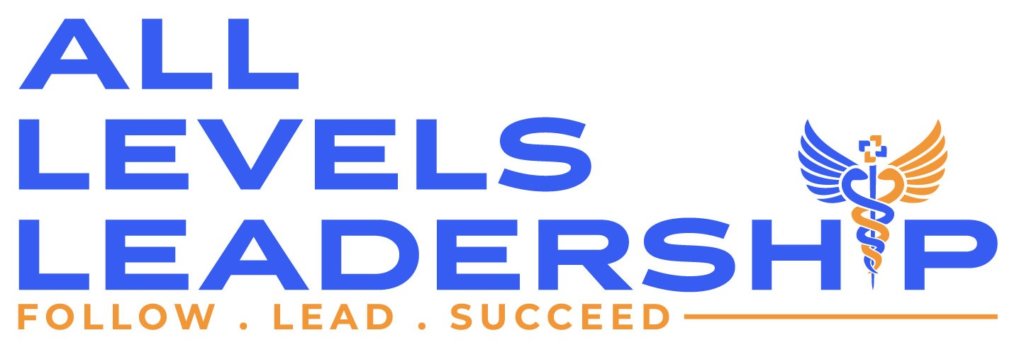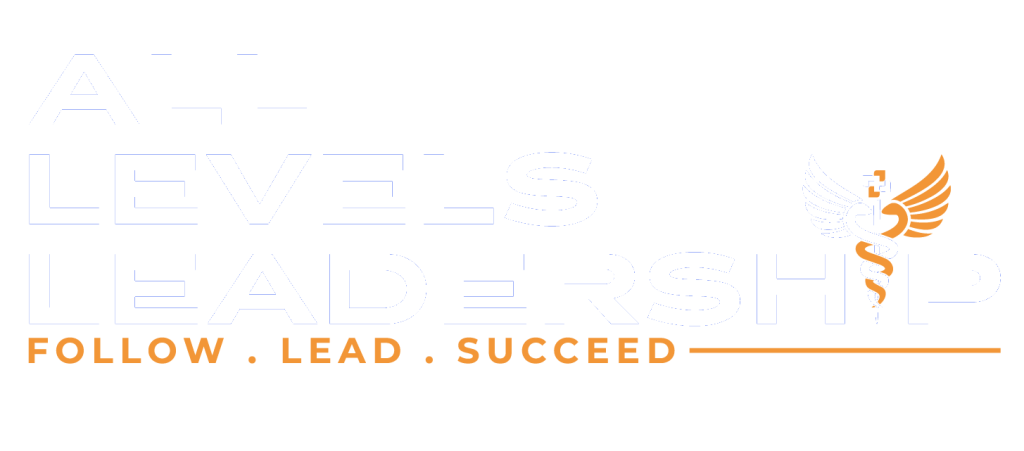Why all provides the best lectures and workshops
Our team has extensive leadership and leadership development experience from the lowest to the highest levels of an organization. We understand the unique challenges and constraints that face health care workers and health care leaders. Typical leadership books and courses don’t consider or address the specifics of healthcare; we bridge that gap.
Lectures
Our lecture series provide the time and cost efficient foundation for leadership development. We work with you to assess your leadership development needs and create unique content to create real results quickly. We provide in person or virtual lectures. We can develop a specific presentation to address your greatest need, or we can create a longitudinal lecture series to present as fits your schedule.
Workshops
Lectures are excellent for providing knowledge and a common framework. But sometimes progress requires dedicated time and high yield interaction among the participants. This is where our workshops can help drive your organization to excellence.
Our team has facilitated high yield workshops at national and international conferences. We are experts who provide leadership education and then facilitate communication and peer learning via small group breakouts.
The Master Influencer Model
Not all healthcare professionals aspire to an official, full-time leadership role. However, every healthcare professional wants to maximize his, her, or their influence. Influence is the skills and traits that allow us to affect the behavior, decisions and development of people and organizations. Influence is key to success in any role, at any level – especially leadership roles.
The Master Influencer Model (MIM) is a tailored, cohort-based, in-depth engagement. The training is a mix of virtual and in-person training. Participants gain the influencing skills and business knowledge required to affect positive change and personal, team, and organizational growth.
Interprofessional Civil Discourse: We Need It Now More Than Ever
In a polarized environment where 93% of Americans acknowledge incivility as a significant problem, fostering civil discourse is more important than ever, particularly in healthcare. This workshop invites participants to explore and define civil discourse, distinguishing it from debate and decorum, and addresses barriers such as assumptions, biases, and overconfidence.
Participants will be introduced to the five pillars of civil discourse: psychological safety, active listening, seeking common ground, rethinking, and developing constructive conversational skills. Through small group discussions, case-based learning, and role-play exercises, participants will develop these skills and practice techniques that promote a respectful and collaborative environment.
By the end of the session, participants will have the tools and frameworks to enhance civil discourse in their institutions, benefiting team collaboration and healthcare delivery.
Learning Objectives:
- Describe the value and challenges of civil discourse in healthcare leadership.
- Discuss a framework for the practice of civil discourse.
- Implement strategies to improve civil discourse in professional settings.
Session Format:
The workshop includes didactic presentations, small group discussions, and interactive role-playing exercises. Participants will engage in conversations that model calling in vs. calling out when addressing harmful dialogue, with exercises to practice transitioning to meaningful, constructive conversations.
The Accommodation Paradox: How Kindness Sabotages Accountability
In this workshop, participants will explore the paradox of how kindness and conciliation in professional settings can erode a culture of accountability and hinder growth. When leaders and educators avoid difficult conversations in an effort to be “nice,” it can result in a lack of accountability, ineffective communication, and the breakdown of trust within teams.
The session will cover how accountability, clear expectations, and constructive feedback foster growth and increase psychological safety within healthcare settings. Through case-based learning and group discussions, participants will practice addressing common pitfalls of accommodation and develop actionable strategies to create a culture of accountability.
Learning Objectives:
- Recognize the importance of accountability in fostering an effective organizational culture.
- Discuss how kindness and avoidance can inhibit necessary feedback.
- Develop strategies to implement accountability within teams.
Session Format:
Participants will engage in case studies and small group discussions, debriefed in larger group sessions, to identify facilitators and barriers to accountability. By the end of the session, participants will leave with a personalized plan for implementing these strategies in their own environments.
Optimizing Growth: A Practical Guide to Managing Negative Feedback
Receiving and processing negative feedback is an essential but underdeveloped skill in clinical education. In this workshop, participants will explore the challenges associated with receiving negative feedback, such as negativity bias, interpersonal dynamics, and feedback quality.
Participants will be introduced to a practical framework for categorizing feedback into four types—essential, valid, necessary evil, and irrelevant—and strategies for addressing each. Through reflection, small group discussions, and role-play, participants will practice processing feedback constructively and using it to foster personal and professional growth.
Learning Objectives:
- Understand how emotions, ego, and personality traits affect feedback reception.
- Learn techniques to mitigate negativity bias and foster balanced feedback perspectives.
- Develop strategies for evaluating feedback and using it effectively.
Session Format:
This workshop includes interactive activities such as problem-solving exercises, small group discussions, and role-playing, all focused on improving feedback receptivity and navigating challenging feedback situations.
Can Teaching Effective Followership Skills Decrease Physician Burnout?
This workshop focuses on teaching effective followership skills as a potential strategy to reduce burnout among physicians. Burnout is often attributed to systemic issues, and while leadership is a well-known factor in mitigating burnout, followership is rarely discussed.
Participants will learn how effective followership can improve job satisfaction, foster a sense of purpose, and support organizational success. Through a mix of didactic presentations, small group discussions, and role-playing activities, participants will practice followership behaviors that can improve collaboration and reduce burnout.
Learning Objectives:
- Identify the characteristics of effective followership.
- Understand the association between followership and reduced burnout.
- Develop strategies for cultivating followership in their professional practice.
Session Format:
The session will combine didactics with interactive small-group activities, where participants will reflect on their current followership skills and develop personalized action plans for enhancing their engagement with leaders and colleagues.
Creating Competent and Collaborative Colleagues: The Role of Peer Mentorship
Peer mentorship offers an alternative to traditional senior mentorship, fostering reciprocal relationships between colleagues at the same career stage. This workshop will explore the benefits of peer mentoring, including enhanced personal and professional development, increased scholarly activity, and improved networking opportunities.
Participants will examine effective peer mentoring models and participate in discussions on the facilitators and barriers to successful peer mentorship. By the end of the workshop, participants will have developed a tailored plan for implementing peer mentorship programs in their institutions.
Learning Objectives:
- Identify the qualities of effective peer mentorship relationships.
- Compare and contrast different peer mentorship models.
- Create a personalized plan for establishing peer mentorship programs.
Session Format:
The workshop will combine didactic presentations, small group discussions, and case-based learning, with opportunities for participants to design mentorship programs suited to their own professional environments.
Moral Courage
The focus on followers and the practice of followership has grown in recent years. Organizations are realizing that success and failure rests on the shoulders of team members. In turn, those practicing followership recognize the increasing influence they play in their organizations. Leaders and followers share the benefits when they work symbiotically, however, not all supervisors are competent leaders. Followers unwilling to challenge leaders may unwittingly contribute not only to the demise of their systems but of their own wellness.
Since most physicians spend the majority of their careers in a follower role, it is important to practice optimizing the skills of followership. This includes supporting effective leaders as well as recognizing destructive leadership that may encroach upon patient safety, resident education and wellness, and team morale. While we know this to be true, we will present data that highlights the reluctance to confronting authority even when patient safety is on the line. We explore some of what drives this behavior, recognizing the very real threats that come with speaking up.
We will also outline the three components of moral courage and how moral courage is an essential pillar in followership. In our workshop, we will discuss timing and strategies to employ when seeking to challenge the hierarchy. We will outline two communication methods used to challenge followed by scenario based practice in smaller break-out groups.
Finally our workshop will confront head on the reality of how to prepare when constructive confrontation doesn’t work. In some cases, moral courage means you challenge, sometimes you resist, and unfortunately for some, it means to walk away. Our workshop acknowledges that when taking moral action means leaving, while it is not easy, they are some basic steps to lessen the impact.
Participants will leave the workshop with a framework to challenge authority and groupthink professionally and courteously in situations where patient safety, education, wellness, and morale may be at risk.
Organization and method of presentation: Introduce definitions and concepts; followed by group break-out sessions to evaluate various scenarios; followed by large group discussion to close workshop.
Learning objectives:
- Upon completion of this session, participants will be able to recognize the importance of followership (leading from where you are) in leadership development and identify characteristics of effective followership.
- Upon completion of this session, participants will be able to challenge leadership professionally and courteously when patient safety, resident education and wellness, and team morale is at risk.
- Upon completion of this session, participants will be able to identify situations when it is morally appropriate to leave a particular situation how to manage the personal consequences that may ensue.
The Accountability Paradox: When “Nice” Becomes Dysfunctional and Creates an Ineffective Culture
This workshop explores the intricate relationship between leadership, followership, and accountability. In healthcare organizations, accountability serves as both the engine and the brake for change. Even in well-intentioned environments, leaders and team members may feel powerless if there is no clear framework compelling individuals to act in alignment with institutional goals. The absence of accountability can create workplaces that are pleasant but ultimately ineffective.
The workshop will focus on how courage and fear influence accountability, providing either a framework for personal and organizational growth or a system that becomes stagnant. We will present five key components of accountability: honesty, engagement, coaching, sponsorship, and creative disruption. Each of these elements will be explored as crucial factors in fostering a productive, accountable environment.
Participants will learn how these components can be applied in both leadership and followership roles, with practical strategies to make individuals more effective in holding themselves and others accountable. Case-based scenarios will be used to illustrate how accountability can either enhance or hinder organizational success, and participants will work through each scenario in small groups.
Additionally, the session will highlight the impact of courage, ownership, and responsibility in contrast to fear and avoidance. By exploring these dynamics, participants will leave with a solid framework for developing accountability in their own institutions, which can be applied in both medical practice and medical education.
Organization and method of presentation: The workshop will begin with an introduction to the paradoxical nature of accountability: with it, institutions thrive; without it, they flounder. Participants will work through case studies that highlight the five pillars of accountability: honesty, engagement, coaching, sponsorship, and creative disruption. Each case will focus on how courage and ownership lead to positive outcomes, while fear and avoidance hinder progress. Group debriefs will maximize audience participation and learning.
Learning objectives:
- Understand the importance of accountability in leadership and followership.
- Apply key components of accountability—honesty, engagement, coaching, sponsorship, and creative disruption—in professional settings.
- Develop strategies to foster a culture of accountability that encourages courage and responsibility over fear and avoidance.
By the end of the session, participants will have a comprehensive understanding of how to create environments where accountability drives positive change, and they will have practical tools to implement in their own organizations.
Target audience: This workshop is designed for individuals involved in leadership education within graduate medical education, but it is applicable to anyone interested in leadership and accountability in healthcare.
Learner level: All learner levels.
I’m Still Listening: Eliciting, Receiving, and Accepting Feedback as Faculty
In medicine, most learning occurs on the job, with feedback serving as a primary tool for growth. However, once healthcare professionals transition from trainees to faculty, they often find themselves in a “feedback vacuum.” This workshop addresses the critical need for continued feedback even after completing formal training, emphasizing that professional growth does not end with graduation. Receiving and acting on feedback remains vital for personal development and for setting an example to learners.
Faculty members often find themselves in positions where receiving feedback is more challenging, particularly from peers or those they supervise. The session will begin with a reflection on personal attributes—such as learning styles, personality traits, and communication habits—that influence how feedback is given and received. Understanding these internal factors is the first step to becoming more receptive to feedback.
The workshop will also address the communication barriers that faculty face when seeking and receiving feedback. Participants will learn techniques for eliciting feedback from colleagues, subordinates, and other sources, even when it is not directly offered. Furthermore, the session will highlight the different forms that feedback can take, including feedback that is not explicitly labeled as such but still provides valuable insights for growth.
Finally, the workshop will focus on processing and incorporating feedback into professional practice. Participants will explore strategies for managing both positive and negative feedback, ensuring that constructive criticism becomes a tool for continuous improvement rather than a source of frustration or stagnation. Through role-playing exercises in small groups, attendees will practice creating actionable plans for turning feedback into meaningful personal and professional development.
Organization and method of presentation: The session will begin with an introduction to key concepts and definitions related to feedback. Participants will then break into small groups to evaluate scenarios that highlight common challenges in receiving feedback as faculty. The workshop will conclude with a large group discussion, where participants will share insights and strategies for addressing these challenges.
Learning objectives:
- Recognize how personality and learning traits affect responses to feedback.
- Identify communication challenges and strategies for receiving feedback as faculty members.
- Develop an action plan for processing and incorporating constructive feedback.
Target audience: This workshop is intended for faculty and staff physicians interested in faculty development and improving their ability to receive and act on feedback.
Learner level: All levels.



